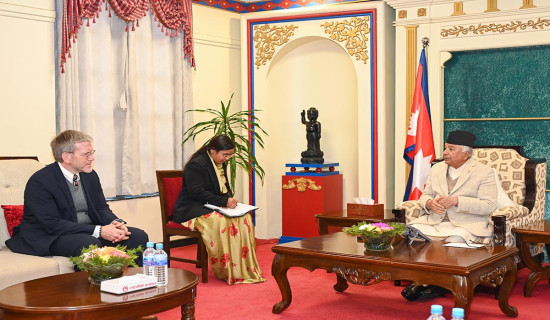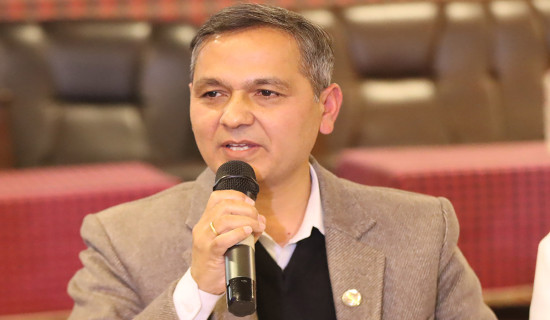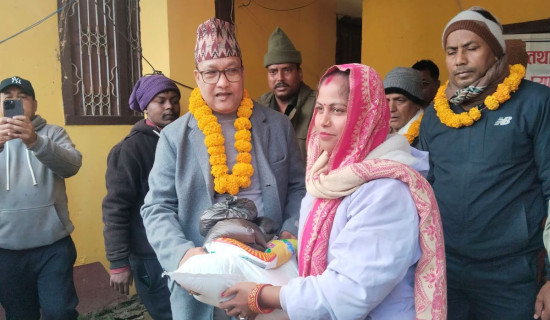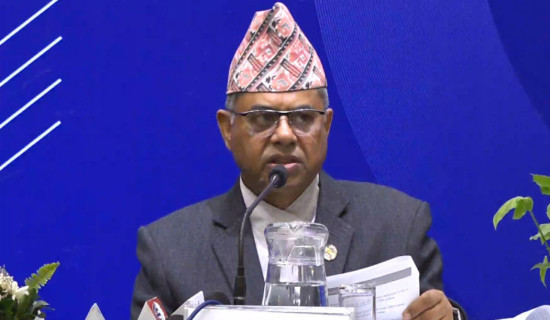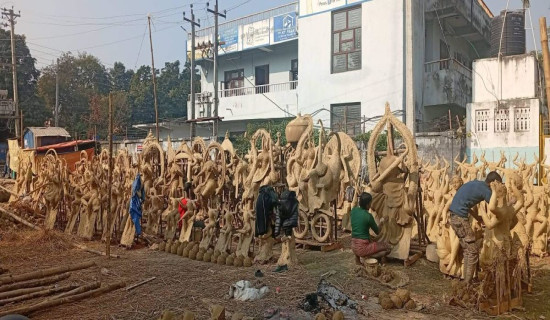- Thursday, 8 January 2026
TU Academic Courses: They Must Address Needs
Mukti Rijal
Governance Issues
Undoubtedly, several management and governance issues hit the university, its constituent and affiliated campuses and institutions. However, some innovative and distinctive gains are credited to a few of its constituent and affiliated campuses spread across the country. These achievements indicate that there is a light at the end of the tunnel. It does prove that a high-level dedication and commitment to the management of the academic affairs in the individual campuses l itself can improve the situation and produce exemplary outcomes which can be replicated and scaled up across the academic programmes and institutions.
Of all the TU constituent campuses such as Saraswati multiple campus (Thamel ), Bhairahawa multiple campus, Mechi multiple campuses and so on have spruced up their image during these days. They have started to offer constructive examples in academic performance, especially in the business management-related courses, informs Dr Dilli Sharma, dean of the TU management faculty. For some time now, the Campus chief, assistant campus chiefs, program directors, faculty members and management staff have worked with constructive rapport and coordination to ensure that the courses run on the above-mentioned campuses are carefully planned, made competitive and respond to the demands and requirements of the evolving needs and context, adds dean, Dr Sharma. Increased coherence and collaboration with the team have helped improve the performance of the campus, echoes Saraswati campus chief Dr Golman Gurung confirming the views held by dean Dr Sharma.
In fact, like many other campuses, the Saraswati campus has, of late, recovered from the ailing state of its academic health that was pushing it into a kind of deterioration. The campus has reclaimed some of its lost space and vigour and now become an example to make it a point that a dedicated and hardworking team putting their efforts into coherence and collaboration can make a huge difference in improving the academic profile of an institution, admits the dean Dr Sharma, referring to the improved profile of the Bhairahawa Multiple and Saraswati Multiple campuses. The first campus chief of Saraswati was elder scholar and renowned administrator Shankar Raj Pathak who had played a key role in giving the robust infrastructural and organizational shape to the institution. According to octogenarian scholar Pathak, senior politician Ram Chandra Poudel, top-notch industrialist Binod Chaudhury, comedian-artist Santosh Pant and active politicians and activists like Keshav Sthapit, Bina Magar are among several other public personalities who have been its alumni during previous times.
Saraswati Campus has stolen the limelight these days when the Master of Business Management (MBM) program it has run produced the university toppers in semester exams for the last two years in succession. Bhairahawa Multiple campus is also coming up successfully to give better academic outcomes in this program.
Entrepreneurship-Oriented
MBM program is an entrepreneurship-oriented course that, according to Dr Jitendra Dangol, director of the programme in Public Youth Campus aims at catering to the needs of the market. This program is so designed as to bring about a convergence of knowledge and skills with the evolving needs and demands of the market, adds Dr Dangol. Public Youth Campus has started running the programme in the ongoing year and exam results are yet to be declared. According to Dr Dangol, demand for this programme has increased these days as this is very much a practical and enterprise-oriented course.
It makes it easier for students to get job offers in the functioning market enterprises and entities. The programme is being branded and customised through appropriate customisation of important ingredients of MBA and MBS, explains Dr Dangol.
Needless to say, when it comes to disciplinary domains and subjects like commerce, business and management, the public campuses have a long background and history such as Shanker Dev Campus, Public Youth campus, Nepal Commerce Campus, Palpa campus and similar others have maintained a kind of unbeaten track record to their credit. But now Saraswati campus has, among others, joined the league of campuses with appreciable performance to its credit, adds dean, Dr Sharma.
When talking about how this was made possible, the MBM program director Kul Prasad Pandey was quick to retort that the two-week-long induction program held for the students before the running of the regular classes lays down the firm foundation for the students to pursue their two-year course successfully.
They are fully orientated on what they should know, understand and demonstrate throughout the four-semester from a cognitive and practical point of view. Another positive aspect of the program has been that it is a student-centred and learner-defined course, says Shiva Raj Ghimire, long-serving assistant campus chief of the campus.
Students themselves are encouraged to take initiative and lead from the front to organize the seminars, webinars and lecture series in which reputed academics, chief executive officers from public and private enterprises and practitioners are invited to share their perspectives and experiences. Besides the contents, these lectures and interactions enrich the base of knowledge and understanding. This has also given the students an exposure to the managerial issues, practical and real-life world of enterprise operation, opines Ira Shrestha, assistant campus chief who looks after campus operation during the regular hours.
The most appreciated part of the MBM programme has been the seminars and the intensive deliberations convened on the current critical issues bearing upon the global, regional and national economy.
Rejina Bhattarai, an MBM student who topped the first semester praises the deliberations presented by the guest experts and discussants on Sri Lankan financial crisis, monetary policy and many other relevant topical issues and subjects. Such type of interactive and learning spaces keep the students updated and abreast of the current issues, echoes Deependra Joshi, the MBM student club coordinator who takes lead in organizing the interactive discussion series.
Students' Club
This type of club of students is an innovative concept brought into fruition in the Saraswati Campus, says Pandey, MBM program director. Dr Dangol, MBM program director of the Public Youth Campus agrees with Pandey and emphasizes that practical exposure provided to students makes them employable in the market.
As students are encouraged and enabled to take ownership of their learning activity, they develop confidence and creativity to clarify their curricular needs and take charge as to how these could be realistically met and addressed. The success of the MBM program shows that similar gains can be secured in other disciplines as well if the efforts and inputs are scaled up and propagated with earnestness.
The TU campus authorities are expected to repeat similar feats of success in other programs and disciplines -paid or unpaid – to give a facelift to the entire academic profile of the higher seat of learning. Moreover, the time has come for Tribhuvan University itself to review and restructure the academic management system to provide new direction and orientation to the academic profile drawing on the success stories of the programs managed and run by different public campuses.
(The author is presently associated with Policy Research Institute (PRI) as a senior research fellow. rijalmukti@gmail.com)










